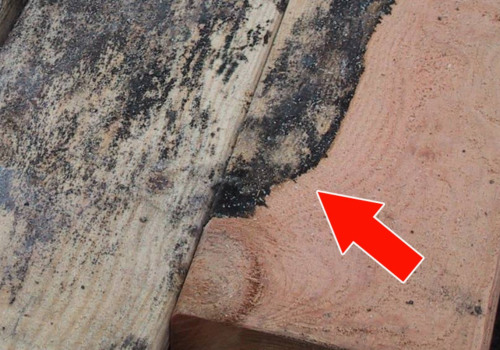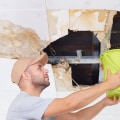Water damage can have a significant impact on the appraised value of your home. If you're looking to get the equity you've earned on your property, it's important to be aware of the potential effects of water damage. Any location where there is evidence of water damage inside or outside your home should be addressed prior to the appraisal. A small leak from a water pipe that has not been repaired may cause the appraiser to look more closely for signs of damage to wood, plasterboard and mold.
Rust stains on bathtubs or sinks and under faucets can be evidence of leaks or faucets. Loose tiles or raised stains on a hardwood floor can also be signs of current or past water damage. The attic is another place that is usually inspected by an appraiser, so look for signs of water damage in rafters and insulation. If you find any, it could mean that your roof has defects and this can actually affect the appraisal.
So, does water damage reduce the value of your home? In short, yes; water damage decreases the value of your home. The amount by which water damage decreases the value can be limited by identifying water damage, contacting a water restoration company, and repairing water damage thoroughly and quickly. With rising home values and quality repair work, your home will not suffer any loss in value. External attractiveness also affects evaluations.
Appraisers judge how good your home looks from the street because they know that this will affect initial interest and willingness to pay more. Any ongoing or unrepaired structural damage may damage your appraisal. Home appraisers are trained to look for telltale signs of structural damage, such as cracks in walls or floors. They may even discover problems that are unknown to you, as structural damage often goes unnoticed until the owner specifically looks for signs of wear and tear.
Proximity to poorly maintained, unoccupied, or foreclosure homes can also affect the appraisal of your home. These generally decrease the value of properties in the neighborhood because these homes can be a major hoax or even spaces for squatters to enter or for mischief to occur. The number of full and half bathrooms is also important; if all the houses around you have two full bathrooms and you only have one and a half bathrooms, that will reduce the value of your home appraisal. For homeowners trying to sell their home, water damage can affect their ability to sell their home at fair value or require extensive repairs before the sale.
If you have suffered damaging water damage due to a flood or broken pipe, the water may have damaged your foundation. After this, any foundation problems caused by water damage are fixed and repaired ensuring that your home structure is maintained. Getting rid of mold and replacing damaged drywall and wood can help, but only to a certain degree; you need to ensure that the root cause of water damage is also addressed. Water Damage May Lower Your Home Value, But Water Damage Restoration Can Keep Devaluation to a Minimum.
Small water problems and minor water damage may have no impact on a home's value, especially in today's popular housing market. The first step to restoring your home after water damage is to remove all damaged wood, drywall and carpet. A simple Google search for “water damage restoration service” near me will return a list consisting of several companies that can repair your home and remove all water and mold, returning your home to or close to its full value. For homeowners who are considering selling their home, it's best to have a home inspector visit the property to assess any water damage that needs to be repaired before selling it.
Even if you managed to quickly remove all standing water from your home after a storm, flood or emergency situation, or if you have repaired roof leaks, there is a possibility that persistent moisture can cause damage beyond what you can see on your walls, floors and ceilings. Water restoration companies offer a variety of services to restore your home after water damage occurs.









